Pennsylvanians’ Attitudes About Elections
Pennsylvania is a key state in the 2024 elections. To understand how people there feel about issues related to voting and election administration, the States United Democracy Center conducted a survey of about 1,000 adults in September 2024.
Among the major findings: Pennsylvanians broadly trusts their election system, believe in counting every legal vote, and reject election denial.
Even at a time of deep polarization and rampant election lies, the survey finds that people in Pennsylvania—much like the country at large—generally trust the institutions of our democracy.
The results of this survey are consistent with our national polling:
- Pennsylvanians hold many pro-democracy views.
- Election denial is not an effective electoral strategy in Pennsylvania.
- Most respondents are confident that they can find trustworthy information about Pennsylvania elections.
2.1 Trust in state-level vote counting
Most Pennsylvanians-about 70%-say that they have a fair amount or a great deal of trust that votes in their state will be counted accurately in the 2024 presidential election. Like most Americans, Pennsylvanians trust elections in their state even more than they trust elections in the country as a whole.
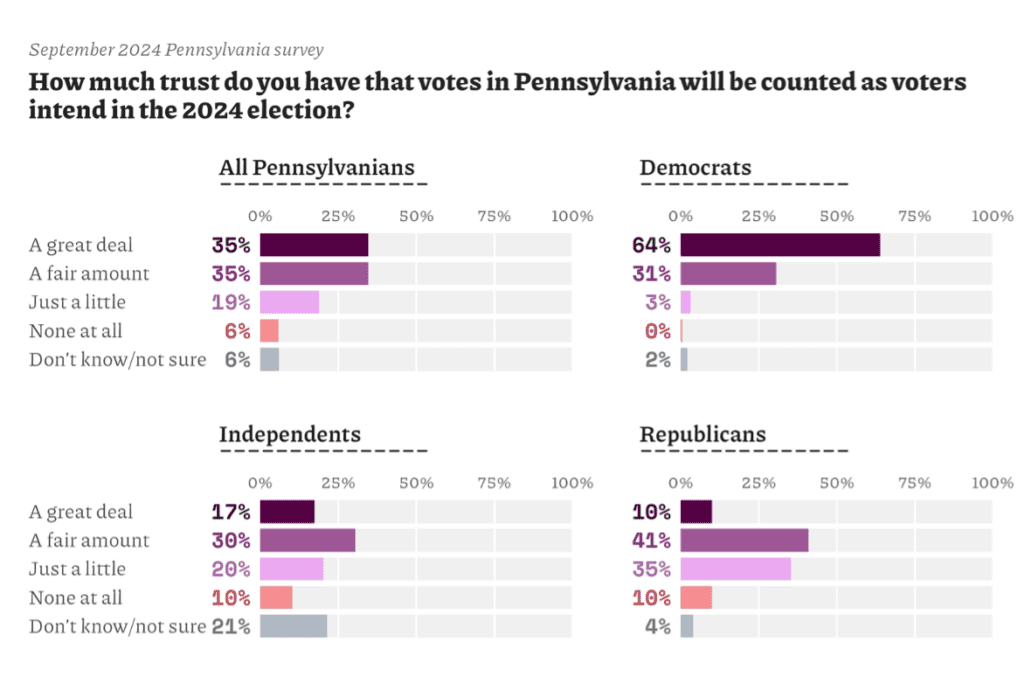
2.2 Confidence in American elections
Despite the yearslong campaign to erode trust in elections, Pennsylvanians express high levels of confidence in elections. About 45% say they are fairly or completely confident that American elections are free, fair, and secure. Only about 25% are not at all confident.
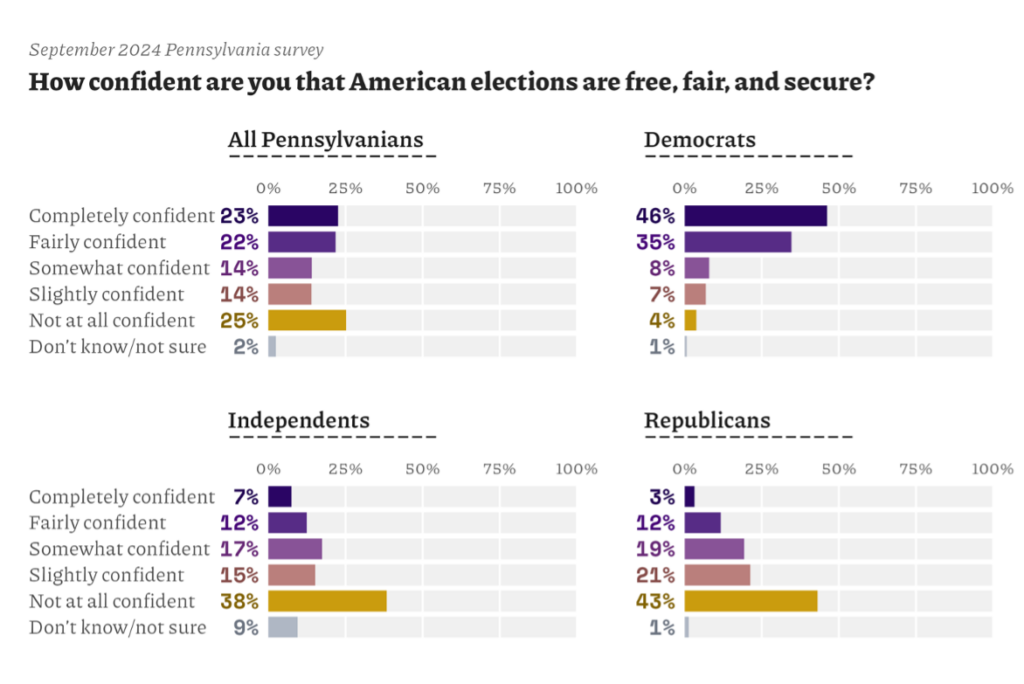
2.3 The importance of counting every vote
An overwhelming majority of Pennsylvanians say it’s more important to count every legal vote in the presidential race than for their preferred candidate to win. Nearly three-quarters somewhat or strongly agree with that principle. There is broad agreement across party lines on this question.
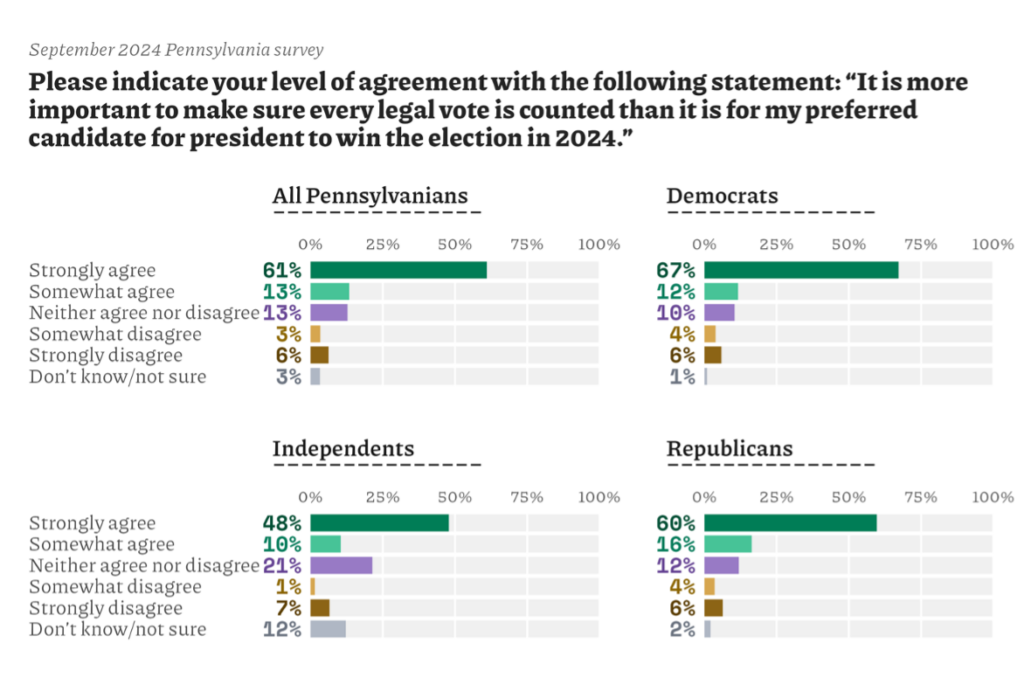
2.4 Confidence in election information
Pennsylvanians are confident they can find trustworthy information about elections in their state. About 55% say they are fairly or completely confident that they can find this information.
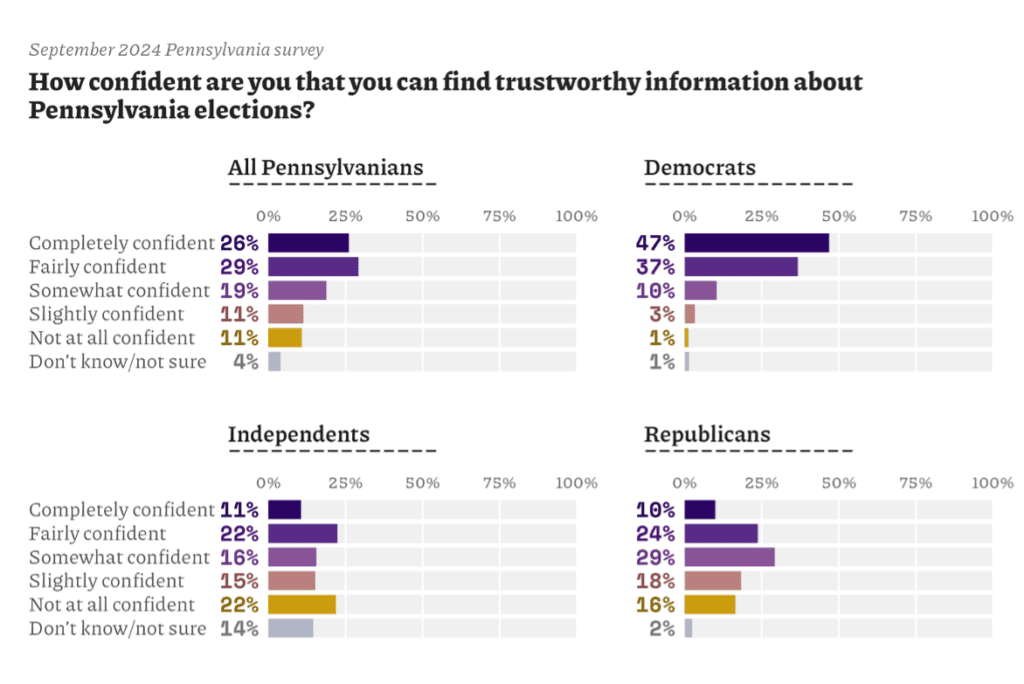
2.5 Views on notice and cure
Most Pennsylvanians (61%) believe that voters should be notified and allowed to correct problems with their mail-in ballots. Only about 23% say that ballots suffering from errors ought to be disposed of and that those who submitted them should not be notified.

2.6 When will the election be called?
Nearly 70% of Pennsylvanians say they expect to know who won the presidential election in their state by the day after the election. Only about 21% think it will take longer.
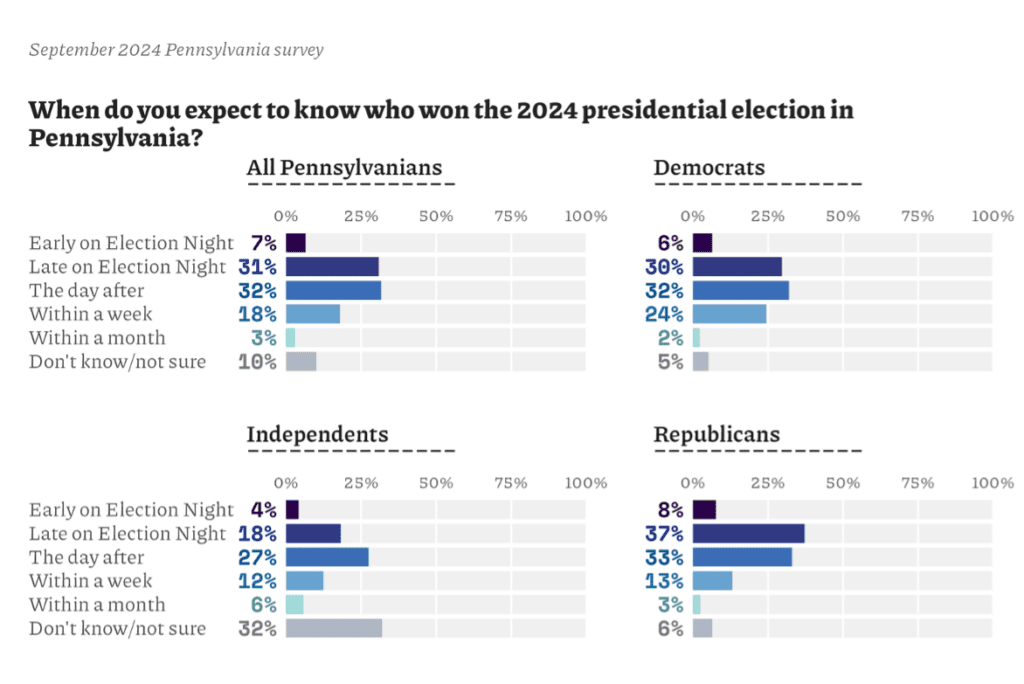
3.1 Belief that the 2020 election was rigged
Election denial is a substantial force in American politics. But a plurality of Pennsylvanians strongly reject the false claim that the 2020 presidential election was rigged against Donald Trump.
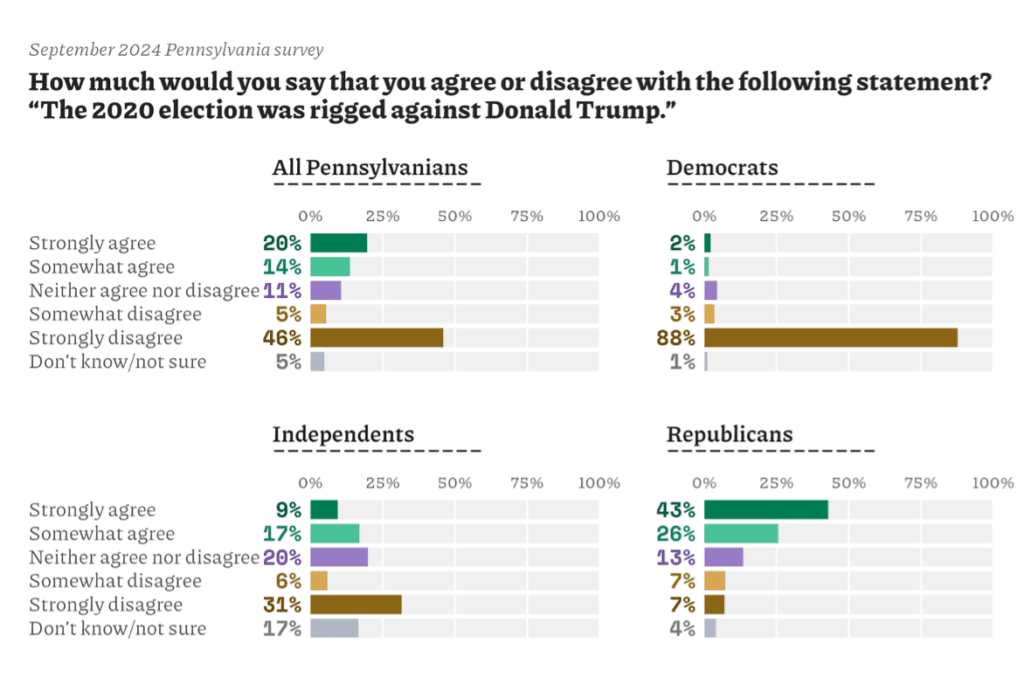
3.2 Support for election-denying candidates
As is the case across the nation, election denial is not a winning message in Pennsylvania. Just shy of 40% of Pennsylvanians say they would be less likely to vote for a candidate who says the 2020 election was rigged against Trump. Only 13% say they would be more likely to vote for a candidate who makes that claim.
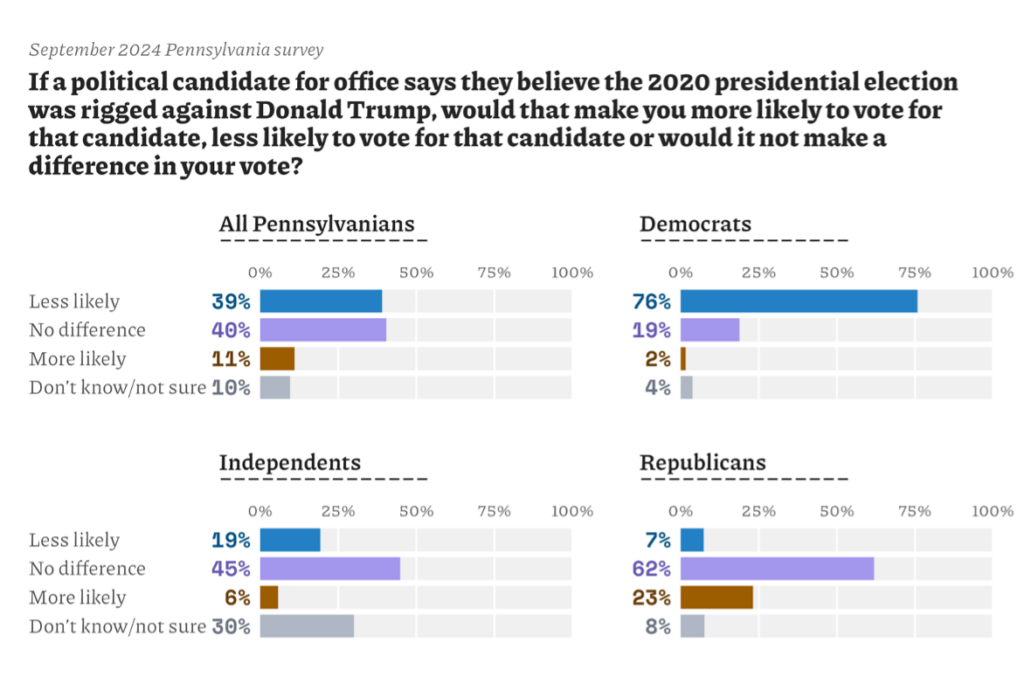
This survey is based on 1,009 interviews conducted on the internet of Pennsylvania adults. Participants were drawn from YouGov’s online panel and were interviewed between Sept. 27 and Oct. 16, 2024. Respondents were selected to be representative of American adults living in Pennsylvania. Responses were additionally weighted to match population characteristics with respect to gender, age, race/ethnicity, education of registered voters, and U.S. Census region based on voter registration lists, the U.S. Census American Community Survey, and the U.S. Census Current Population Survey, as well as 2020 presidential vote. The margin of error for this survey is approximately ± 3.5 percentage points, though it is larger for the analysis of partisan subgroups described above. This figure does not reflect non-sampling errors, including potential selection bias in panel participation or measurement error.
Note: In keeping with best research practices, we classify independent voters who reported “leaning” toward either the Democratic or Republican parties as partisans. Therefore, we define “independents” as those respondents who professed no partisan attachments whatsoever.